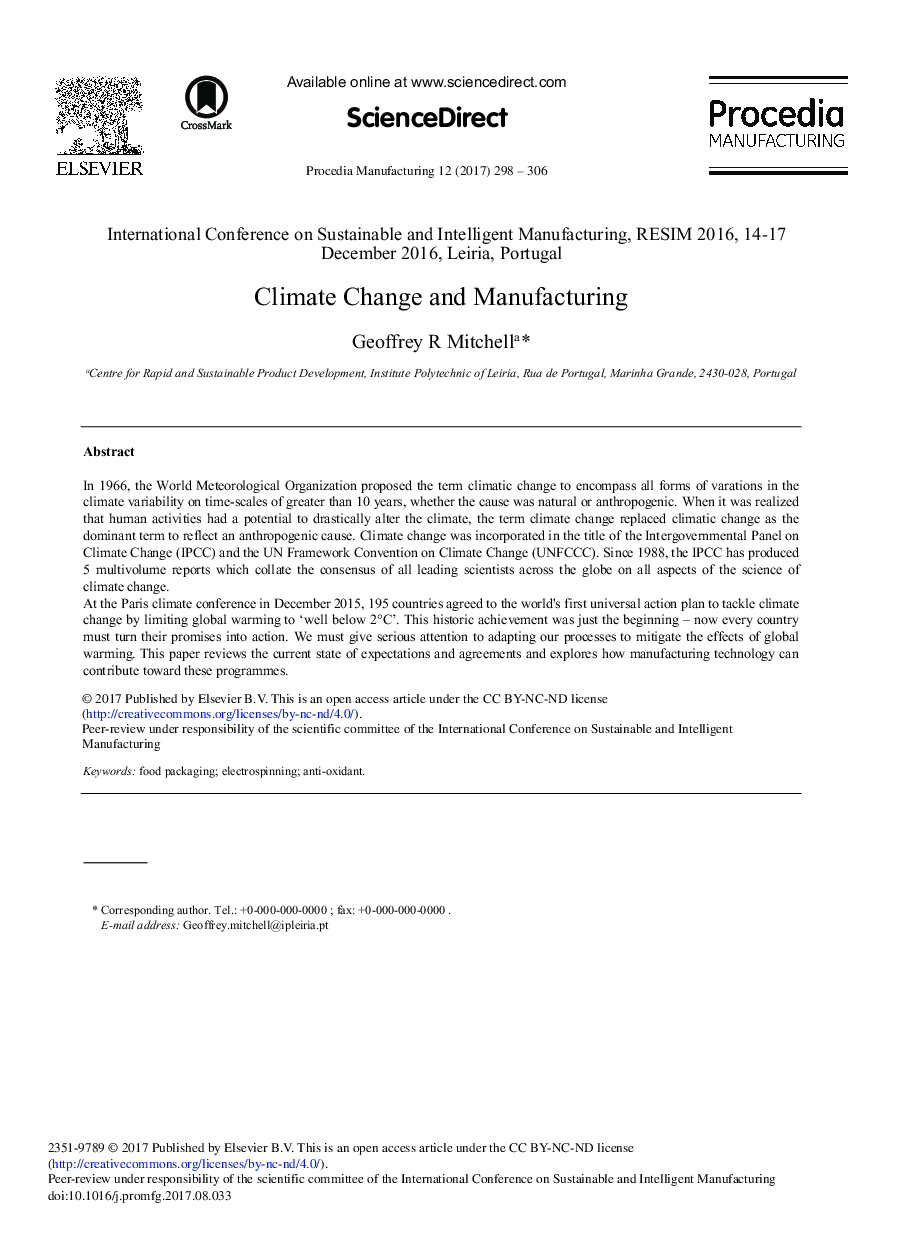| Article ID | Journal | Published Year | Pages | File Type |
|---|---|---|---|---|
| 5128636 | Procedia Manufacturing | 2017 | 9 Pages |
In 1966, the World Meteorological Organization proposed the term climatic change to encompass all forms of varations in the climate variability on time-scales of greater than 10 years, whether the cause was natural or anthropogenic. When it was realized that human activities had a potential to drastically alter the climate, the term climate change replaced climatic change as the dominant term to reflect an anthropogenic cause. Climate change was incorporated in the title of the Intergovernmental Panel on Climate Change (IPCC) and the UN Framework Convention on Climate Change (UNFCCC). Since 1988, the IPCC has produced 5 multivolume reports which collate the consensus of all leading scientists across the globe on all aspects of the science of climate change.At the Paris climate conference in December 2015, 195 countries agreed to the world's first universal action plan to tackle climate change by limiting global warming to 'well below 2 °C'. This historic achievement was just the beginning - now every country must turn their promises into action. We must give serious attention to adapting our processes to mitigate the effects of global warming. This paper reviews the current state of expectations and agreements and explores how manufacturing technology can contribute toward these programmes.
